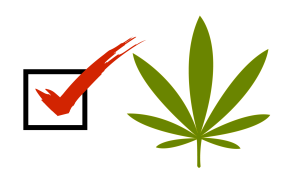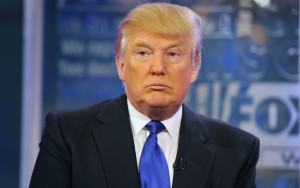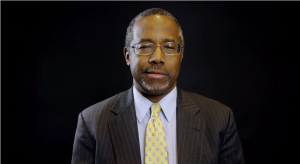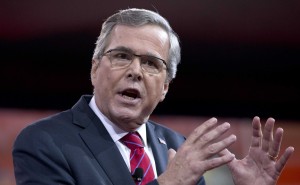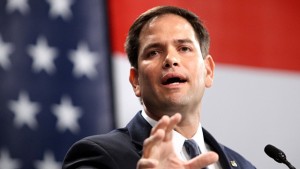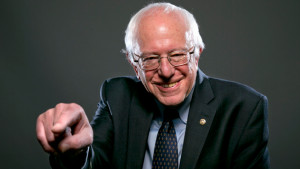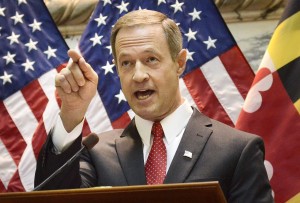What Does the Congressional Cannabis Caucus Mean for Weed?
Leave a Comment
To date, 44 states and territories, including D.C., Guam and Puerto Rico, have passed laws allowing the use of medical marijuana in one form or another. Our President promised during his campaign trail that he would respect state’s rights concerning this issue and leave enforcement in the hands of local governments.
Yet the industry is now growing more and more concerned over recent comments from Trump’s new pick for Attorney General, Jeff Sessions. Will Trump keep his promises? Does the administration even have the power to stop the full-speed legalization train even if they wanted to? What can the Congressional Cannabis Caucus do to secure a better future for cannabis?
What you'll learn in this post:
[Click any of the section titles below to jump there]
Could We Really Move Backwards?
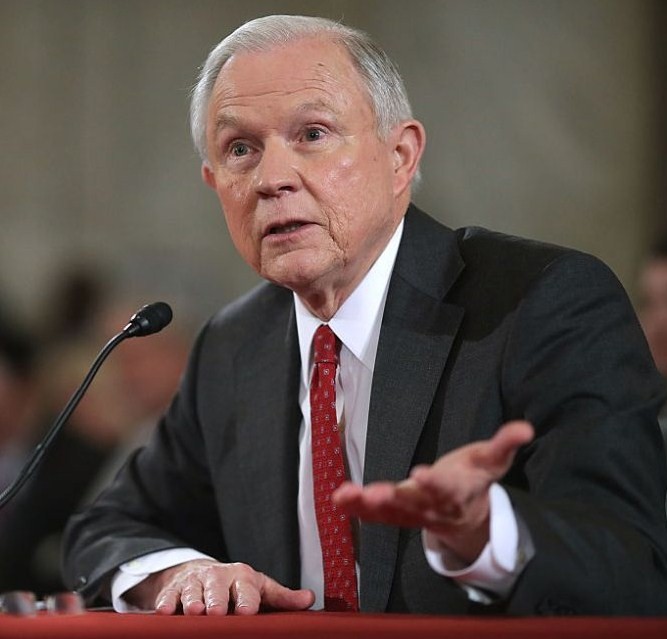
Yes, those who live in legal cannabis states are wondering how safe their investments are. And it’s a fair concern. After all, much of the conversation from GOP stalwarts surrounding legalization is focused on the old knee-jerk arguments from the Reagan Era drug war, statements that have now been proven shockingly false.
For instance, Sessions released a statement just over a week ago saying, “I reject the idea that America will be a better place if marijuana is sold in every corner store. And I am astonished to hear people suggest that we can solve our heroin crisis by legalizing marijuana–so people can trade one life-wrecking dependency for another that’s only slightly less awful. Our nation needs to say clearly once again that using drugs will destroy your life.”
More than 33,000 people died from prescription opioids and illegal heroin in 2015. Roughly half of these deaths were from doctor prescribed medicine.
Yet in the states that have recently legalized medical marijuana use, those deaths have already been reduced by 25 percent.
The lack of scientific and epidemiological understanding in our nation’s leaders is staggering. But how many times can cannabis advocates keep saying that marijuana has never killed a single person and has saved quite a few lives? Till they’re blue in the face? What can you do in the face of such a colossal lack of logical thinking and basic understanding?
The Economic Discussion
According to a recent report from Arcview, legal cannabis sales neared $7 billion in 2014. That’s a whole lot of economy.
Thousands of people have put their life savings into starting new businesses and creating jobs while working with cooperative administrations that realize regulation works best. Some of these companies employ hundreds of people and pay taxes, fees and licenses. In Colorado, for fiscal year 2017 alone, this tax, fee and license income totaled $144,820,374; incidentally a $47 million increase from the year before.
So, the better question might be, how would the Trump administration convince states that are seeing the economic and health benefits of legalization (tax revenue, higher employment, law enforcement savings) to give them up?
It might be safe to assume that the federal government doesn’t have a chance in hell of convincing any legal state to accept the negative rhetoric any more. But four members of Congress aren’t taking any chances.
Meet the Congressional Cannabis Caucus
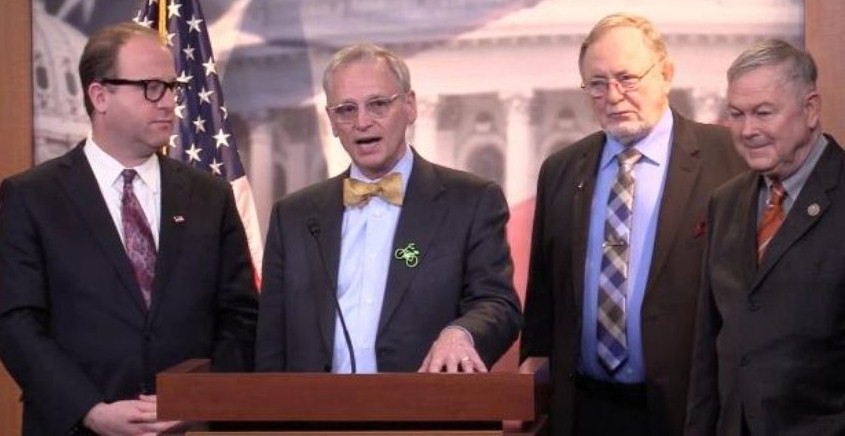
Pot rights powerhouses Rep. Dana Rohrabacher (R) and Rep. Earl Blumenauer (D) have established a new Congressional Cannabis Caucus to fight for more sensible drug laws from the start of the Trump administration. The two other founding members are Rep. Don Young (R) and Rep. Jared Polis (D).
Polis summed up the reasoning behind their decision to form this caucus, saying:
I think, all four of us, we don’t want to be in a place where we are relying on the goodwill of which side of the bed any attorney general wakes up on in any given day. That’s why we’re pursuing statutory changes.
Respect State Marijuana Laws: Third Time’s a Charm?
Rep. Rohrabacher is hoping that the third time’s a charm with his landmark Respect State Marijuana Laws Act.
This bill, currently listed under H.R. 975, is short, sweet and to the point. It’s a one sentence amendment to Part G Sec. 710 of the Controlled Substances Act, which reads:
Notwithstanding any other provision of law, the provisions of this subchapter related to marijuana shall not apply to any person acting in compliance with State laws relating to the production, possession, distribution, dispensation, administration, or delivery of marihuana.
That’s it. The entire bill in its current form. But this tiny paragraph could literally change drug law in the nation forever and prevent Sessions from moving against the legal states.
When introducing H.R. 975 to congress in January, Rep. Rohrabacher said:
It’s a travesty that we don’t know what marijuana can be positively used for or what the negative impact is because we haven’t done the research. That is a travesty. It’s a travesty when our veterans come home and they’re given opiates…and our veterans end up killing themselves because now they’re addicted to an opiate.
Unfortunately so far, it’s only been referred to committee by default, the graveyard where 96% of all bills go to die. Currently the bill has 8 Democrat and 8 Republican cosponsors, but cosponsors aren’t necessarily a predictor of success. Bipartisan cosponsors, on the other hand, are a very good sign. Also, so is buzz in the media.
One of the biggest buzz points for this bill is that it makes banking for cannabis businesses possible, thus enabling the 46 additional billion dollars in black market sales to safely enter the legal tax revenue stream.
This is becoming a very tempting point for many lawmakers, even though this same bill has failed to move forward twice before. But Members of Congress need encouragement from constituents to sponsor pro-cannabis bills considering the opposition they face from establishment members—people they deal with on a daily basis.
The McClintock-Polis Amendment
Meanwhile, Rep. Polis and Rep. McClintock are planning to prevent Sessions from initiating recently-threatened raids and prosecutions by reintroducing the McClintock-Polis Amendment. Meant to become a rider attached to the new federal budget, it can get past a hurdle that most other bills fail to navigate because it’s simply added to a bill that has to pass.
The amendment does much of the same as the successful Rohrabacher-Farr Amendment, as it prevents the federal government from enforcing federal marijuana laws in states that approve the use of marijuana.
But the Rohrabacher-Farr Amendment merely prevents the federal government from spending money on marijuana enforcement in legal states, while the McClintock-Polis Amendment differs by preventing the federal government from arresting and prosecuting people for use, possession or sale of marijuana where it’s legal.
The McClintock-Polis Amendment failed to pass in 2015, even though the Rohrabacher-Farr Amendment did in 2014, and has been renewed each year since then (both must pass every year to remain in effect).
This may be partly due to the fact that Congress felt comfortable passing a budget-saving amendment that prevents the federal government from wasting money but doesn’t tie federal prosecutors’ hands. However, the amendment may stand more of a chance moving forward in the current political environment with constituent encouragement.
Does This Uncertainty Mean Cannabusiness Investments Are a No-Go for Now?

Not necessarily. Sessions would still have to explain his reasoning for prioritizing expensive prosecutions against cannabusiness in legal states when the federal government is already dealing with budget problems. Even Sessions had to admit, “It’s not possible for the federal government, of course, to take over everything the local police used to do in a state that’s legalized it.”
True, it’s possible that the industry is overreacting to Sessions’ hostility toward cannabis. One must admit, it’s very difficult to enforce a law that most people think is wrong. After all, how would you find a jury willing to convict? How do you enforce it in a state where local police are forced by law not to cooperate with federal authorities during raids?
This isn’t to say that Sessions wouldn’t go after some low hanging fruit by encouraging other agencies like the IRS or FDA to go after quasi-regulated cannabis activities. It’s also been theorized that he may order state attorneys generals to crack down, but would they cooperate?
Furthermore, the Cole Memo is still in place. The memo was written in 2013 by then Deputy Attorney General, James Cole, which prioritized prosecution of marijuana offenses around 8 points, focusing mainly on public health and safety concerns. It also acknowledged that prosecution of medical marijuana in states where it’s legal shouldn’t be a priority if it’s not interfering with these 8 public safety considerations.
Unfortunately, it’s an ambiguous enough document that if Sessions were to carry through with his comment that he “may have some different ideas [himself] in addition to that,” he certainly has the power to act.
So What Can You Do?
Industry experts, activists and patients agree that this is a very dangerous time to rest one one’s laurels and become lax with activism. After all, any perception of flagging support from the populous could give misguided leaders the opportunity they think they need to restart the drug war.
So, it’s recommended that you, all medical marijuana patients and supporters, take a couple minutes a week to use the messages in the links below to inform your U.S. Congressional and Senate representatives of their support. It’s easy and only takes a couple of clicks.
U.S. House of Representatives Contacts
Here are three sample letters to help you advocate for the issues listed above:
TheCongressionalCannabisCaucus
Any congress member can join the Congressional Cannabis Caucus; the more members it has, the more power it gains to pass legislation. Wide support from a large congressional caucus with many members can change the 96% possibility that a bill will fail into a near certainty that it will pass.
Presidential Candidates’ Views on Marijuana in the 2016 Election
Leave a Comment
Anyone who has a pulse and has been paying any attention to the 2016 Presidential Election is bound to feel disenchanted with our options for the next leader of the free world, especially when you see which candidates are leading the pack, and what their views on marijuana are.
What you'll learn about:
[Click any of the section titles below to jump there]
Will the Next POTUS Be Pro-Cannabis?
Most of the time, when I listen to candidates speak, I find myself grinding my teeth and wondering if/how some of these people ever passed the fourth grade. Sometimes I don’t even watch. But this election season, I have been, closely, because marijuana is on the table.
In my eyes, it’s the only real silver-lining to this reality-TV-shit-show. Never before has the full legalization of marijuana been used as a serious debate topic on live national television. Never before have candidates been forced to explicitly state their views on marijuana.
It’s made for quite an entertaining debate season. Still, the nation as the whole has a lot of catching up to do (take Ohio as a recent example) when it comes to views on cannabis regulation, but for the issue of marijuana legalization to be discussed during the Democratic Debate, and medicinal marijuana to be discussed during the Republican Debates, is still impressive.
Obviously states like Colorado, Washington, Oregon and Alaska, as well as the District of Columbia, are trail-blazers for all other states to (hopefully) follow, but how close are we to voting in a President who is willing to legalize and regulate the use of cannabis for recreational (i.e. not just medicinal) reasons?
Is it possible that the next POTUS is going to change the game, end the war on drugs and join sophisticated and sensibly-minded countries like Holland, Portugal, Uruguay, Ireland and Germany in decriminalizing or legalizing the magical plant that is Mary Jane?
The voters in 2016 will decide. Hopefully, that means you will help decide.
In order to help inform ourselves on where our Presidential Candidates stand on the issue of full marijuana legalization, and what their views on marijuana are, I created an in-depth list based on meticulous online research. I have only included the top candidates because let’s face it: most of these ridiculous people have less than a 5% approval rating and should just go home already.
Republican Views on Marijuana
DONALD TRUMP
Donald Trump is a billionaire real estate mogul, business tycoon and Reality TV personality who claims America can be great again but clearly isn’t great now. He was born in New York City and graduated from the University of Pennsylvania with a degree in Economics in 1968. He later took control of his father’s company and built a successful real estate empire.
He has been married multiple times, mostly to women of Eastern European origin, and owns many casinos and hotels. He has been associated with the “Birther Movement” which actively promotes the idea that Obama was born outside of the US and should be removed from office.
In the past, Trump has supported and contributed to various Democratic and Independent campaigns but now seeks the Republican nomination for President. He is best known for financing his own campaign while refusing all donations, and for his racist/derogatory remarks against Latinos, Muslims and other groups.
He is ranked # 2 (formerly he had been in the lead) amongst Republicans because he harnesses most people’s distrust of political insiders and the traditional political establishment, and represents what some consider to be real change. Yet still for others, Trump is just extremely entertaining.
Trump’s platform remains vague but includes:
- simplifying the tax code
- decreasing taxes on the middle class
- taxing some of the nation’s wealthiest individuals (and some corporations)
- reducing the national debt by increasing cuts to social services
- supporting the Second Amendment as the law stands now
- fixing our mental health system
- defending the rights of law-abiding gun owners
- creating a nation-wide law to conceal carry
- creating legislation that would allow military personnel to carry guns on military bases and in recruiting centers
- enforcing harsh immigration laws
- building a wall along the entire Southern border of the US and making the Mexican government pay for it
What does “The Donald” think about marijuana?
In 1990 Trump said he supported legalizing all drugs but now he claims he opposes the legalization and regulation of marijuana. He does however, show some support for the legal use of medical marijuana and has stated that he supports states’ rights to choose how to deal with marijuana reform without federal interference.
To quote Trump in 1990 & his views on marijuana:
“We’re losing badly the War on Drugs. You have to legalize drugs to win that war. You have to take the profit away from these drug czars.”
To quote Trump now:
I’d say [regulating marijuana] is bad. Medical marijuana is another thing, but I think it’s bad and I feel strongly about that.”
Donald Trump is one of the most controversial candidates running for the presidency, alongside Bernie Sanders (obviously for completely different reasons). Both are political outsiders who have done very well in the presidential run despite establishmentarians claiming they would fail.
BEN CARSON
Carson is a former neurosurgeon and the only African American candidate running for the presidency in 2016. He was born to a poor, single mother in Detroit. As a child he had problems at school and a very bad temper, but developed a love for reading instilled in him by his mother (who only had a third grade education).
This thirst for new literature bloomed into a life-long love of learning and allowed Carson to improve his grades, graduate from Yale and go on to medical school in Michigan. He worked at Johns Hopkins in Baltimore for 29 years and was the first surgeon to successfully separate Siamese twins (attached at the head) in 1987. He has been accused of objecting to Planned Parenthood’s fetal tissue harvesting program, despite having worked in that field for a while himself.
Carson’s platform includes:
- banning abortion in all circumstances, including incest and rape
- balancing the budget
- keeping Guantanamo Bay open and fully funded
- repealing Obamacare
- protecting the Second Amendment
- deepening our financial, political and military commitment to Israel
- other conservative stances on issues ranging from education to reforming the tax code.
What does Ben Carson think about marijuana?
While Carson has shown limited support for medical marijuana he prescribes to the “gateway drug” theory and firmly stands against the full legalization of marijuana. He has claimed that he would enforce federal laws in states like Colorado. He has also said that if elected president he would not only continue the War on Drugs but actually “intensify it.”
To quote Mr. Carson & his views on marijuana:
“I think medical use of marijuana in compassionate cases certainly has been proven to be useful. But recognize that marijuana is what’s known as a gateway drug. It tends to be a starter drug for people who move onto heavier duty drugs – sometimes legal, sometimes illegal – and I don’t think this is something that we really want for our society. You know, we’re gradually just removing all the barriers to hedonistic activity and you know, it’s just, we’re changing so rapidly to a different type of society and nobody is getting a chance to discuss it because, you know, it’s taboo. It’s politically incorrect. You’re not supposed to talk about these things.”
When asked if he would continue the war on drugs: “Absolutely. I would intensify it.”
JEB BUSH
Jeb Bush is the younger brother of former US President George W. Bush and the son of former US President George H.W. Bush. He is the former Governor of Florida and a businessman. He married his college sweetheart, whom he met in a square in Mexico City while on a college semester abroad.
He has recently been mocked in the media for stating that his brother kept our country safe during his presidency and cannot be blamed for the endless war in the Middle East or the terrorist attacks on the World Trade Center on September 11th, 2001. He trails in the polls behind Donald Trump and Ben Carson.
Bush’s platform includes, but is not limited to:
- lowering taxes on “everyone” (including Big Business) so that we may be more competitive with China
- stopping government overspending (he cites a bill Paul Ryan has endorsed)
- defeating ISIS by expanding US military and diplomatic power in the region and getting help from our allies in the Middle East
- improving border patrol infrastructure (including use of drones)
- finding a way to initiate criminal and other background checks on immigrants already in the US
- sending people home who have overstayed their visas,
- improving the V.A.
- approving the Keystone XL pipeline
- increasing our reliance on the export of oil and natural gas.
Jeb is currently seeking to crawl out from under the Bush Family’s shadow.
What does Jeb Bush think about marijuana?
Bush’s stance on marijuana legalization is a bleak one: he has a long history of supporting the War on Drugs, he and his wife are on the advisory board for a far-right, anti-marijuana organization called the Drug Free America Foundation and despite admitting to smoking pot as a youth, he continues to oppose the legalization of marijuana including medical marijuana.
He does however, support the states right to choose how to deal with marijuana use and feels the federal government should not interfere in states decisions on this issue.
To quote Mr. Bush & his views on marijuana:
“I thought [legalizing marijuana in Colorado] was a bad idea, but states ought to have that right to do it. I would have voted ‘no’ if I was in Colorado.”
MARCO RUBIO
Marco Rubio is a Senator from Florida and former Speaker of the Florida House of Representatives. He is a child of immigrants from Cuba who came to the US searching for the “American Dream.” He grew up in Miami and Las Vegas and watched his parents work their way up to the Middle Class.
His platform includes:
- stopping the spread of Communism from Cuba and halting Chinese economic influence on the U.S. by clarifying our “moral stance” and reversing the Obama administration’s policies regarding these countries
- reigning in government spending
- ending Common Core
- imposing hard-core immigration policies and stopping people from having “anchor-babies”
- standing strong against Iran by ending the Nuclear deal
- standing against ISIS through increased military presence
- continuing to prop up and endorse the state of Israel
- ending Putin’s aggression
- putting an end to Sanctuary Cities
- strengthening the Second Amendment, and more.
Senator Rubio has been trailing Carson and Trump in the polls but is still considered a viable contender for the Republican nomination, alongside Jeb Bush.
What does Marco Rubio think about marijuana?
Rubio is completely opposed to the legalization of marijuana and only supports medical marijuana if non-psychoactive forms of cannabis are used. He is one of the least marijuana-friendly candidates running for office and despite some polls claiming 58% of Americans support legalization, he will not budge on the issue. He believes that states that have legalized marijuana should be punished by the federal government and that the federal government is not enforcing the law the way it should.
To quote Rubio & his views on marijuana:
“I’m against the legalization of marijuana.”
“Marijuana is illegal under federal law. That should be enforced.”
Democratic Views on Marijuana
HILLARY CLINTON
Clinton is and has been well-known for decades. She is a former lawyer, the former First Lady (her husband Bill Clinton was one of the most popular US Presidents in recent history despite being impeached for lying about his extra-marital activities), former Senator from New York and she served as Secretary of State during Obama’s first term as president.
She holds sway over many voters because she is a strong woman and the only woman on the Democratic side who is running for the presidency.
She was favored to win the presidency in 2008 but failed due to the mobilization of millions of voters who typically don’t bother to show up and vote, who were swayed by Obama’s “Yes We Can” mantra. Hillary is hell-bent on winning the 2016 election and becoming the first woman president of the U.S.
However, many are disenchanted with her for various reasons, including but not limited to: her flip-flopping on numerous issues over the years, the Benghazi fiasco, her foreign policy, the scandal surrounding the Clinton Foundation funding and the fact that she comes from money and has been “bought” in the past by big industry and the big banks which she now appears to be trying to divorce her campaign from (despite accepting their donations).
Clinton’s current platform includes:
- Improving gun control measures
- including background checks (she is the most anti-gun candidate on the ballot)
- making health care more affordable
- immigration reform
- campaign finance reform
- creating a new student debt system (that sounds very complicated and doesn’t actually make college free)
- criminal justice reform
- making America “green”
Clinton espouses to believe all these things but hasn’t believed them for very long and many question her sincerity. However, if she means it, her platform is pretty good.
She recently claimed to be against for-profit prisons but it appears she may have accepted campaign contributions from the for-profit prison industry, although now she claims she is giving those donations to charity. Only time will tell if Hillary means what she says.
What does Hillary Clinton think about marijuana?
Clinton supports medical marijuana legalization but refuses to show support for full marijuana legalization. She claims states like Colorado are “laboratories for democracy” and that she feels that the legalization of marijuana should be dealt with by the states, not the federal government.
To quote Clinton & her views on marijuana:
“I really believe it’s important that states like Colorado lead the way, so that we can learn what works and what doesn’t work. And I would certainly not want the federal government to interfere with the legal decision made by the people of Colorado, and enforced by your elected officials, as to how you should be conducting this business that you have approved. So, no, I want to give you the space and I want other states to learn from you, what works and what doesn’t work.”
BERNIE SANDERS
Sanders is a U.S. Senator from Vermont. He is by far the most radical, transparent and consistent of the Democratic Party bunch, although many people have trouble with the label “democratic socialist”. People just read some books on it, it’s not that scary.
SEE ALSO: Bernie Sanders Proposes Taking Marijuana Off the Governments Most Dangerous Substances List
He has built a platform based on:
- taking on the Wall Street Banksters
- getting corporate money out of politics
- free higher education and medical care for all
- the idea of building a truly exceptional America – one in which our children will have the bright future they deserve.
Bernie has no Super PAC and all of the money his campaign has raised, $44.6 million in total since April 2015, has come from almost 1 million small-scale individual contributions of less than $200.
What does Bernie Sanders think about marijuana?
Sanders supports the national legalization of medical marijuana and recently admitted that if he was a voter in Nevada he would vote YES for legalizing marijuana for recreational use as well.
This implies he supports full legalization, even for recreational use.
Marijuana has been decriminalized in Vermont and as mayor of Burlington, Vermont, Bernie made sure that the police force focused their efforts on preventing violence, rather than busting people for pot.
He has been extremely critical of the War on Drugs and has been very vocal about the need for a more progressive and humane way of dealing with true addicts.
He feels that the state has failed people by arresting millions of non-violent citizens and throwing them in jail for drugs, including marijuana and has stated that if he becomes president, the War on Drugs will end. Are you feeling the Bern yet?
To quote Senator Sanders at the Democratic Debate in Las Vegas:
“I suspect I would vote yes. And I would vote yes because I am seeing in this country too many lives being destroyed for non-violent offenses. We have a criminal justice system that lets CEOs on Wall Street walk away, and yet we are imprisoning or giving jail sentences to young people who are smoking marijuana. I think we have to think through this war on drugs which has done an enormous amount of damage.”
Bernie makes a great point: it is time to start arresting the real criminals (i.e. the people who are responsible for crashing the economy in 2008 or murderers and rapists who inflict willful harm on others) and stop imprisoning people for their use of a plant.
Just to prove how committed he is to legalizing marijuana, putting a serious dent in the War on Drugs and supporting millions of Americans around the country who are tired of the government interfering in their private affairs, Senator Sanders filed a Senate Bill just this week that would give states total control over the decision about legalizing marijuana for recreational purposes and decriminalize marijuana on the Federal level.
If the bill passes the Senate it would mean that dispensaries and growers in states where marijuana has been legalized would be able to use federally-backed banking institutions and would be a landslide victory against the continuation of the War on Drugs.
MARTIN O’MALLEY
O’Malley is the former Governor of Maryland and in my humble opinion, his policies may or may not be directly responsible for the violence and police corruption that has plagued the city of Baltimore before and after the high-profile murder of Freddie Gray by police. However, he seems to think he can win the presidency despite his mediocre-at-best performance at the Democratic Debate last week. We shall see.
His platform is a decent one and includes but is not limited to:
- 100% renewable energy nation-wide by 2050
- cutting youth and veteran employment rates entirely
- a comprehensive (but maybe too complex) plan to combat the student aid crisis and new immigration reforms.
Sounds pretty good to me, Martin. Wait, except for one thing…
What does Martin O’Malley think about marijuana?
O’Malley does not support in any way the full legalization of marijuana, nor does he personally support marijuana for medicinal use or any other use.
Despite his personal opinion on marijuana, he did, however, as Governor of Maryland in 2014, sign laws into effect that decriminalized marijuana possession for small amounts and that created a workable medical marijuana program.
He claims that if he were elected President, he would try to get marijuana re-classified to Schedule II, down from Schedule I.
But, I doubt this since under O’Malley’s watch, Maryland has become 4th in the country for marijuana arrests and more people have been arrested there in recent years for marijuana than for all violent offenses.
To quote O’Malley & his views on marijuana:
“We’ve seen what drug addiction has done to the people of our state, to the people of our city,” O’Malley said. “This drug, its use and its abuse can be a gateway.”
Sounds like the same old shit to me, Martin.
Well, there you have it, a marijuana-lovers guide to the 2016 Presidential hopefuls and their views on marijuana.
I hope that this article helps those of you who wish to push cannabis reform forward, to make informed decisions regarding who you choose to lead the U.S. for the next four years. Happy voting marijuana-lovers!
As always, if you need some inspiration or need to do some real critical thinking as to who you want to lead our great nation, I recommend placing an order for delivery through Nugg! There app makes ordering cannabis an easy, reliable process, instead of the sketchy crap-shoot it is now!

